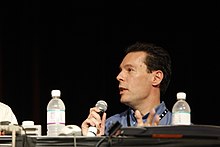This article may rely excessively on sources too closely associated with the subject , potentially preventing the article from being verifiable and neutral.(September 2023) |

Herb Sutter is a prominent C++ expert. He is also an author of several books on C++ and was a columnist for Dr. Dobb's Journal.